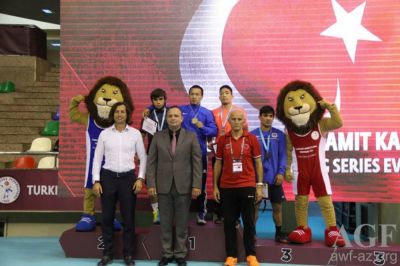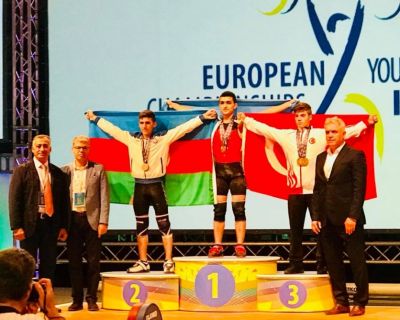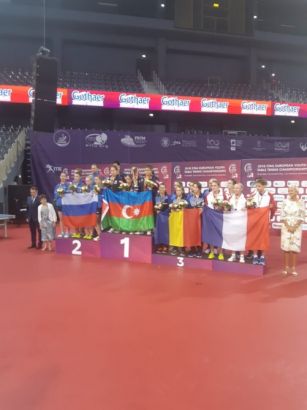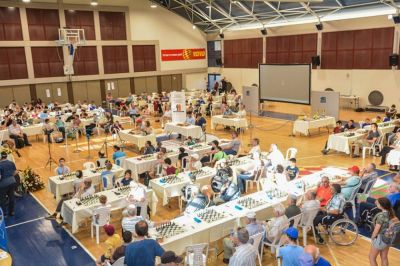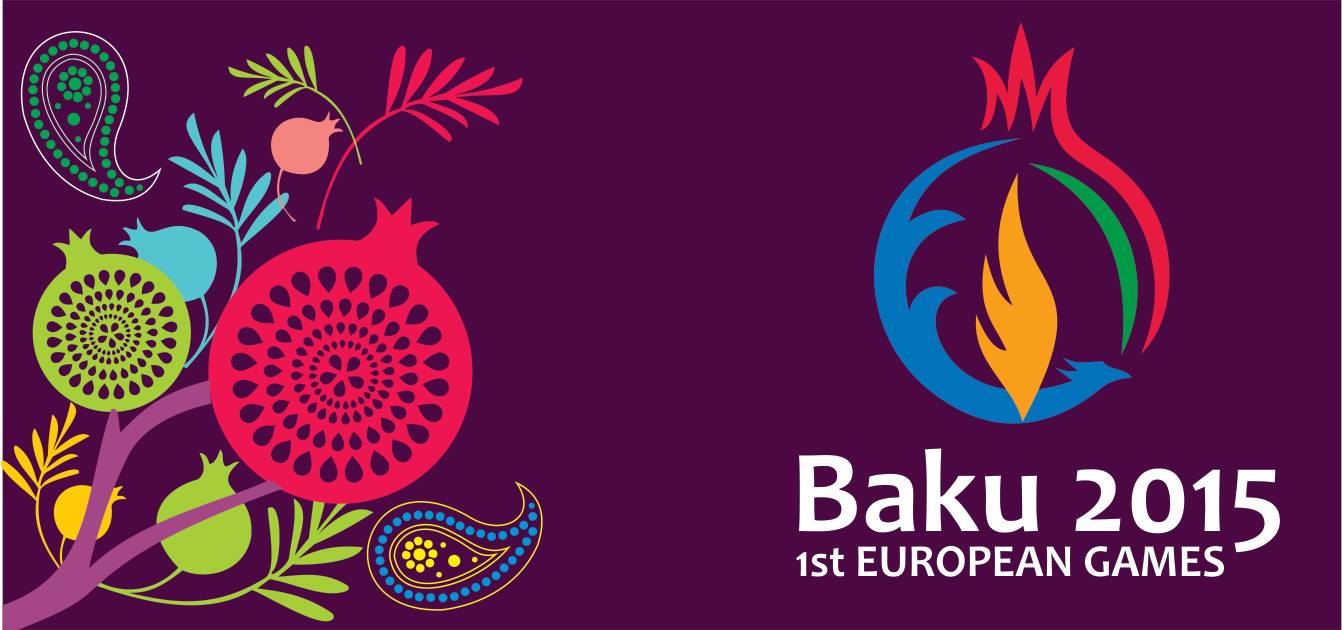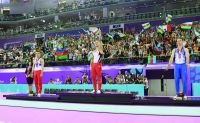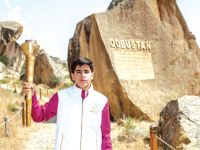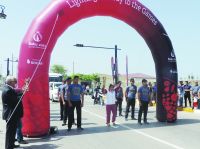Permanent representative of Azerbaijan to the United Nations Agshin Mehdiyev has sent a letter to Secretary-General Ban Ki-moon on the 20th anniversary of Khojaly genocide.
The letter says: "The most serious crimes of concern to the international community, such as war crimes, crimes against humanity and genocide, were committed in the course of the ongoing aggression of the Republic of Armenia against the Republic of Azerbaijan. These days Azerbaijan commemorates the twentieth anniversary of atrocious crimes committed against the civilians and defenders of the town of Khojaly, situated in the Daghlyq Garabagh (Nagorno Karabakh) region of the Republic of Azerbaijan.
On the night of 25 and 26 February 1992, the armed forces of Armenia, with the support of irregular armed bands and terrorist groups, as well as with the direct participation of the infantry guards regiment No. 366 of the former Union of Soviet Socialist Republics, the personnel of which was composed mainly of ethnic Armenians, implemented the seizure of Khojaly. The attack and capture of the town involved the extermination of hundreds of Azerbaijanis, including women, children and elderly; thousands of civilians were wounded and taken hostage, many of whom remain missing; while the town was razed to the ground. As a result, 613 civilians were killed, including 106 women, 63 children and 70 elderly. Another 1,000 people were wounded and 1,275 taken hostage. To this day, 150 people from Khojaly remain missing.
The level of brutality in Khojaly is shocking: atrocities included scalping, beheading, bayoneting of pregnant women and mutilation of bodies. The facts confirm that the intentional slaughter of the Khojaly town civilians was directed at their mass extermination only because they were Azerbaijanis. By committing this appalling crime, its perpetrators also had a purpose to strike terror into the hearts of people and create fear before the horrifying massacre. Indeed, Khojaly was chosen as a stage for further aggression, occupation and the ethnic cleansing of Azerbaijani territories.
Apart from the considerable information in possession of the law enforcement agencies of Azerbaijan, the responsibility of Armenia, as well as its political and military
leadership and subordinate local armed groups for the crimes committed in Khojaly is recognized and documented by numerous independent sources, eyewitnesses to the tragedy and even admitted by Armenia`s high-ranking officials and this country`s public sources. This responsibility emanates from both general international law and, more particularly, from the provisions of the European Convention on Human Rights, to which both Armenia and Azerbaijan are parties.
In its judgment of 22 April 2010, the European Court of Human Rights arrived at an important conclusion with respect to the crime committed in Khojaly, qualifying the behaviour of those carrying out the incursion as "acts of particular gravity which may amount to war crimes or crimes against humanity". The European Court made in this regard the following observation, which leaves no doubt as to the question of qualification of the crime and ensuing responsibility for it:
"It appears that the reports available from independent sources indicate that at the time of the capture of Khojaly on the night of 25 to 26 February 1992 hundreds of civilians of Azerbaijani ethnic origin were reportedly killed, wounded or taken hostage, during their attempt to flee the captured town, by Armenian fighters attacking the town ..." (Judgment of the European Court of Human Rights of 22 April 2010, para. 87).
The event had sparked the exodus of Azerbaijanis from their historic lands. Ten years on and the world is still oblivious to the suffering caused by the Armenian aggression against the Republic of Azerbaijan. As the result of ethnic cleansing in Karabakh, and other territories occupied by Armenians, some 1,000,000 people have been expelled from their homes and forced to live in tent-camps and railway carriages
Pascal Privet and Steve Le Vine of "Newsweek" in the article "The face of massacre" reported: "Azerbaijan was charnel house again last week: a place of mourning refuges and dozens of mangled corpses dragged to a makeshift morgue behind the mosque. They were ordinary Azerbaijani men, women and children of Khojaly, a small village in war-torn Nagorno-Karabakh overrun by Armenian forces on 25-26 February. Many were killed at close range while trying to flee; some had their faces mutilated, others were scalped"
Human Rights Watch called the tragedy at the time "the largest massacre to date in the conflict."
"The New York Times" wrote about "truckloads of bodies" and described acts of "scalping."
As despicable as it may sound, the reason behind this unseen savagery is revealed by President of Armenia Serzh Sargsyan (in 1992 a warlord) in his interview to British journalist Tomas De Waal "We don`t speak loudly about these things. Before Khojaly, the Azerbaijanis thought that they were joking with us, they thought that the Armenians were people who could not raise hand against the civilian population. We were able to break that [stereotype]". No comments.
The relevant Security Council resolutions adopted in 1993 in response to the illegal use of force against Azerbaijan and occupation of its territories (822 (1993), 853 (1993), 874 (1993), 884 (1993)) made specific reference to violations of international humanitarian law, including the displacement of a large number of civilians in Azerbaijan, attacks on civilians, and bombardments of inhabited areas. It is beyond dispute that such acts amount to war crimes, crimes against humanity, and racial discrimination.
The overall assessment of the causes and consequences of the war unleashed by Armenia against Azerbaijan makes it absolutely clear that the intentional slaughter of the Khojaly town civilians and defenders was not an isolated or sporadic act, but was part of Armenia`s widespread and systematic policy and practice of atrocities, at the core of which are odious ideas of racial superiority, ethnic differentiation and hatred. It should be also noted that the Khojaly massacre and other crimes committed against Azerbaijanis during the conflict have finally exploded the myth depicting Armenia as an eternal victim.
The Government of Azerbaijan is confident that consistent measures being taken at the national level as well as the existing legal framework of prosecution of, and punishment for, the most serious crimes of concern to the international community will serve to ending impunity for the crimes in Khojaly and other grave offences committed in the course of the aggression of Armenia against Azerbaijan. It is important to ensure that
pursuit of offenders is undertaken through either the domestic legal system of involved and third-party States or relevant international criminal institutions, as appropriate, and that State responsibility is enforced through existing inter-State mechanisms."
{nl}
AzerTAc
© İstifadə edilərkən "Xalq qəzeti"nə istinad olunmalıdır.





